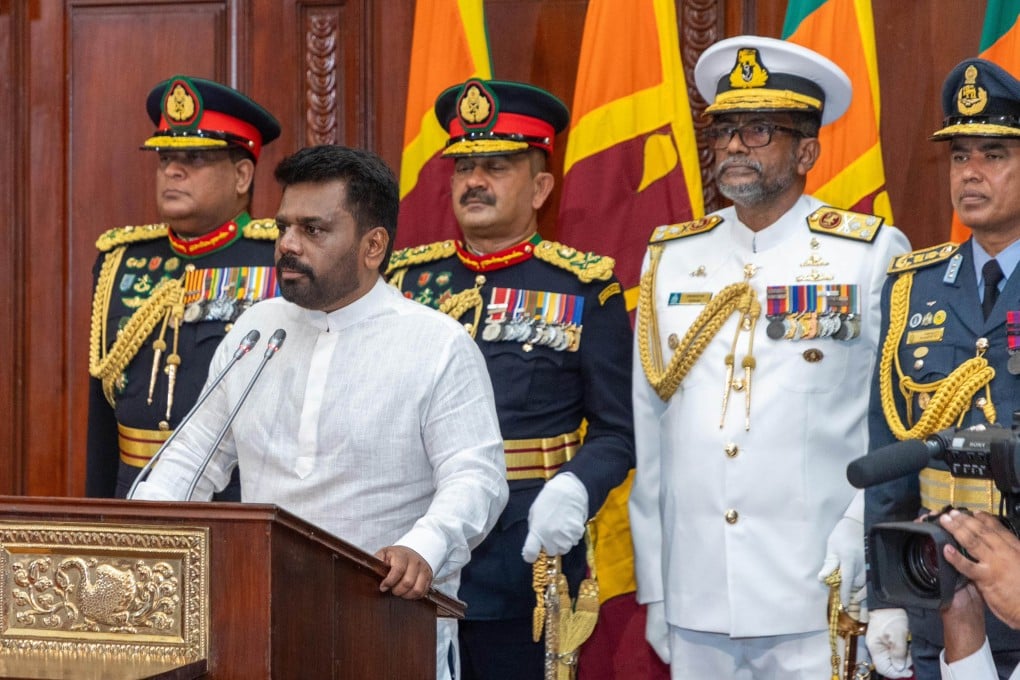Sri Lanka’s new president sparks optimism even as doubts over IMF loan revamp persist
President Anura Kumara Dissanayake promises Sri Lankans that his coalition government aims to end the country’s economic and debt crisis

“I am not a conjuror, I am not a magician, I am a common citizen,” Dissanayake said during his oath-taking ceremony. “I have strengths and limitations, things I know and things I don’t. My responsibility is to be part of a collective effort to end this crisis.”
His NPP coalition, which includes the Janatha Vimukthi Peramuna (JVP) and 20 other political groups, trade unions, and civil society organisations, had surged in popularity amid the nation’s worst economic crisis in decades.
In the 2020 general elections, the NPP garnered just 3.84 per cent of the vote. But as Sri Lanka grappled with crippling shortages of essentials such as medicine and fuel in 2022, and as the IMF’s US$2.9 billion bailout programme imposed austerity measures that strained daily life, Dissanayake emerged as a beacon of hope for many.
In his manifesto, he pledged to alleviate the burden of the IMF’s austerity measures – which include cost-recovery-based utility prices and a wider tax base – and hinted at renegotiating the terms of the IMF programme. He also proposed revisiting an IMF tool for assessing a country’s ability to service its debt or Debt Sustainability Analysis (DSA).